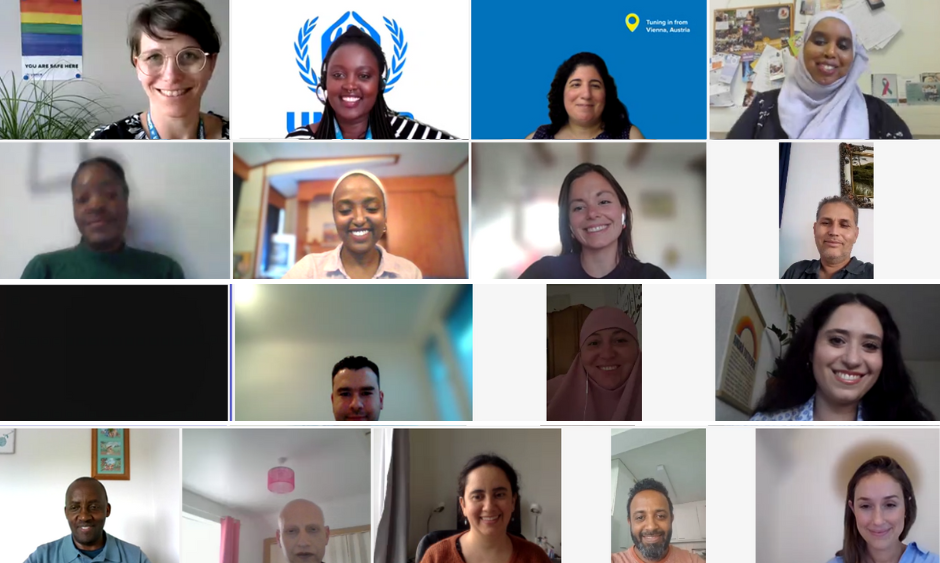UNHCR statement on proposed policy changes for Ukrainian refugees
UNHCR statement on proposed policy changes for Ukrainian refugees
UNHCR, the UN Refugee Agency recognizes the current accommodation challenges facing the Government of Ireland but urges it to continue to pursue creative and suitable accommodation solutions for refugees from Ukraine.
The call follows proposed changes in policy for Beneficiaries of Temporary Protection which will introduce a 90-day limit on State-provided accommodation for refugees from Ukraine arriving to Ireland. Social protection payments for new arrivals will also be significantly reduced.
The Temporary Protection Directive obliges EU Member States to ensure that temporary protection beneficiaries have access to suitable accommodation. While recognizing the current accommodation challenges facing the government, UNHCR is concerned that there may not be enough capacity in the private market or via existing schemes to meet the ongoing needs of new arrivals. In this context, a time limit of 90 days is unlikely to be sufficient to enable people arriving from Ukraine to become self-reliant and to source independent accommodation which may result in people becoming homeless or destitute.
UNHCR is grateful to the Government that those who are considered to be medically vulnerable will continue to be prioritised for State accommodation, and is appealing that others with particular needs should also be taken into account in the design of the new accommodation policy, including children, older persons, women at particular risk and persons with disabilities. These people may need additional supports to secure accessible and adapted accommodation where they have access to essential services such as health care. UNHCR recommends that procedures to identify people at heightened risk, in addition to those with medical vulnerabilities, are included as part of the implementation plans for the new policy.
Sustainable, long-term accommodation solutions, such as the rapid build homes scheme, and the offer a home scheme, should be resourced and scaled up. UNHCR welcomes, for example, the recent call for expressions of interest from the private sector for the provision of modular accommodation and recommends that a review is conducted as soon as possible of alternative solutions with a view to expanding them to meet ongoing needs.
CHANGES TO SOCIAL WELFARE ENTITLEMENTS
UNHCR also notes the proposed changes to benefits from €220 per week to €38.80 for those in State accommodation. This is the same weekly amount provided to international protection applicants which has not increased since 2019 despite inflation and cost of living increases. The level of payments provided to both international protection applicants and newly arrived beneficiaries of temporary protection should be reviewed by government to ensure that they keep pace with increased costs of living and are sufficient to provide a dignified standard of living in line with the state’s obligations under the Charter of Fundamental Rights of the EU.
UNHCR welcomes the decision to continue to provide full child benefit payments to refugees from Ukraine in State accommodation, as well as the fact that newly arriving temporary protection holders will still be eligible for full social protection benefits once they move on from state provided accommodation.
ENCOURAGING EMPLOYMENT& SELF-RELIANCE
UNHCR also encourages the government to provide additional resources to support the self-reliance of refugees from Ukraine and, where possible, maximize their prospects to rent independently on the private market.
Further efforts should be made to remove barriers to employment that reflects their skills and experience. This may include enhanced access to language courses, affordable childcare, labour market activation supports and the recognition of prior qualifications and experience. Maintaining access to social protection benefits such as the Working Family Payment and Rent Supplement will support independence for those in low paid employment.





